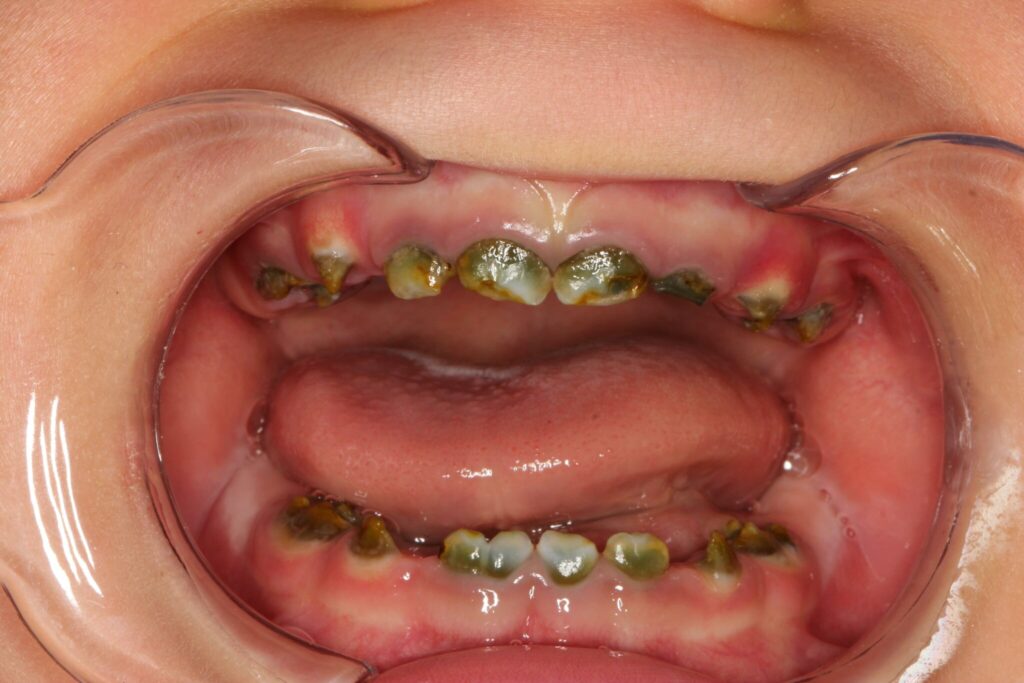Congenital neurosyphilis (CNS) represents a serious health condition that arises from a syphilis infection transmitted from an infected mother to her child during pregnancy. This condition primarily affects the nervous system of the infant, leading to a range of neurological and developmental issues. Timely diagnosis and treatment are critical in preventing long-term complications.

What is Congenital Neurosyphilis?
Congenital neurosyphilis occurs when the bacterium Treponema pallidum, the causative agent of syphilis, is transmitted from a mother to her unborn child, leading to infection of the infant’s central nervous system. If left untreated, congenital syphilis can cause severe damage to the child’s brain, spinal cord, and other parts of the nervous system. Early intervention can mitigate these risks, but without proper care, congenital neurosyphilis can result in profound physical and cognitive impairments.
Pathogenesis of Congenital Neurosyphilis
The transmission of syphilis from mother to child typically occurs during pregnancy, most often in the early stages of the disease. The infection crosses the placenta, infecting the fetus and affecting multiple organ systems, including the brain. The progression of the disease can vary, with some infants showing no symptoms at birth, while others may exhibit severe neurological manifestations.
The severity of congenital neurosyphilis largely depends on the timing of maternal infection and the effectiveness of prenatal care and treatment. The risk of transmission is highest during primary or secondary syphilis, where the bacterial load is at its peak.
Causes and Risk Factors
The primary cause of congenital neurosyphilis is maternal syphilis, which occurs when a pregnant woman with untreated syphilis passes the infection to her unborn child. The key factors contributing to the development of congenital neurosyphilis include:
- Untreated Syphilis in Pregnancy: If a pregnant woman is diagnosed with syphilis but does not receive adequate treatment, the infection can spread to the fetus, leading to congenital syphilis and potentially to neurosyphilis.
- Lack of Prenatal Care: Inadequate prenatal care or failure to screen for syphilis during pregnancy increases the risk of transmitting the infection to the baby.
- Late or Inadequate Treatment: Inadequate or late-stage treatment of syphilis in pregnancy can prevent the bacteria from being eliminated in time to prevent transmission.
- High Risk Behaviors: Individuals with high-risk behaviors, such as unprotected sexual contact with multiple partners or those with syphilis infections, have a higher likelihood of contracting and transmitting the disease.
Symptoms of Congenital Neurosyphilis
Symptoms of congenital neurosyphilis may not always be apparent at birth, and they can develop over time. The condition can present in a range of neurological and systemic signs, which include:
Early Signs in Newborns
- Meningitis: Inflammation of the protective membranes of the brain and spinal cord, leading to irritability, fever, and poor feeding.
- Seizures: Newborns may experience seizures due to brain involvement.
- Hydrocephalus: The accumulation of cerebrospinal fluid (CSF) in the brain, leading to an enlarged head and increased intracranial pressure.
- Failure to Thrive: Poor weight gain, developmental delay, and lethargy are common indicators of neurological involvement.
Later Symptoms in Infants and Children
- Developmental Delays: Cognitive impairments, speech delays, and motor function abnormalities can become apparent as the child grows.
- Vision and Hearing Problems: Vision loss and hearing impairments may occur, with optic nerve damage leading to blindness and nerve involvement causing sensorineural hearing loss.
- Behavioral Issues: Irritability, learning difficulties, and changes in motor coordination are common signs.
Diagnosis
Early diagnosis is crucial for minimizing the long-term impact of congenital neurosyphilis. Healthcare providers typically employ a combination of clinical evaluation, laboratory tests, and imaging studies to confirm the presence of syphilis in infants. Key diagnostic methods include:
- Maternal and Infant Serology: Blood tests that detect syphilis antibodies in both the mother and infant. The presence of antibodies indicates an active or past infection.
- Cerebrospinal Fluid Analysis: A lumbar puncture may be performed to analyze the cerebrospinal fluid for signs of infection, such as an increased white blood cell count, elevated protein levels, or the presence of the Treponema pallidum bacterium.
- Imaging Studies: Ultrasounds or CT scans of the brain may show signs of hydrocephalus, calcifications, or other structural abnormalities caused by the infection.
Treatment of Congenital Neurosyphilis
Prompt and appropriate treatment is essential for preventing long-term complications of congenital neurosyphilis. The primary treatment involves antibiotics, which aim to eliminate the Treponema pallidum bacteria from the infant’s system. The following treatment protocols are typically followed:
- Penicillin: The gold standard for treating congenital syphilis and neurosyphilis is penicillin, administered intravenously. Penicillin is highly effective at eradicating the infection and preventing further damage to the nervous system.
- Follow-Up Care: Infants treated for congenital neurosyphilis require close monitoring for neurological development and hearing and vision screening. Additional treatments or interventions may be necessary if long-term complications are detected.
Prevention of Congenital Neurosyphilis
Preventing congenital neurosyphilis involves effective prenatal care, including routine screening for syphilis, early detection, and proper treatment. The following steps can help reduce the risk of transmission:
- Routine Syphilis Screening: Pregnant women should undergo syphilis screening during their first prenatal visit and again during the third trimester, especially for high-risk populations.
- Timely Treatment of Syphilis: If syphilis is diagnosed during pregnancy, prompt treatment with penicillin is essential to prevent transmission to the fetus.
- Partner Screening and Treatment: Sexual partners of pregnant women diagnosed with syphilis should also be tested and treated to prevent reinfection.
The Importance of Early Intervention
Its an diagnosed and treated, the better the prognosis for the affected infant. Early intervention significantly reduces the risk of irreversible damage to the nervous system, improving the child’s chances of normal development. Regular prenatal care, including syphilis screening, and timely treatment during pregnancy are essential for the prevention of congenital neurosyphilis.